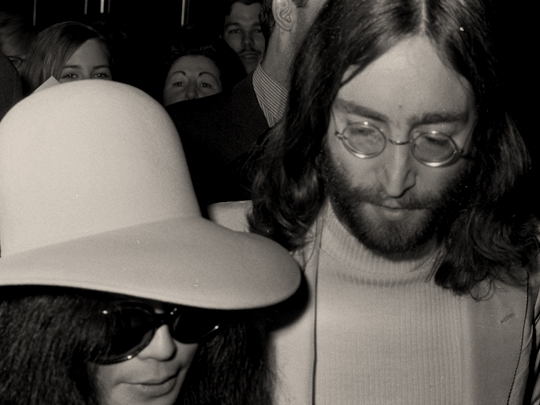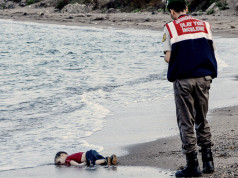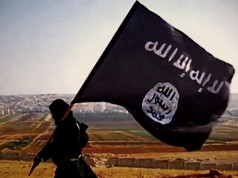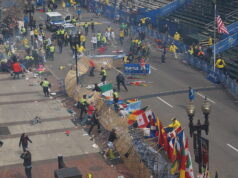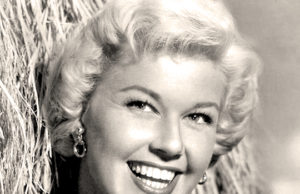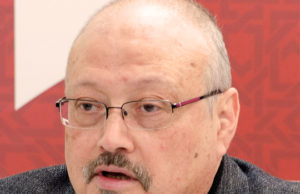By Eric Koch / Wikimedia Commons / CC-BY-SA-3.0 / GFDL
1 – Beatles Legend John Lennon is Shot Dead in New York City
John Lennon was an English musician who gained worldwide fame as one of the members of the Beatles, his subsequent solo career, and for his political activism and pacifism.
On Monday, December 8, 1980, Lennon was shot by Mark David Chapman in the archway of the Dakota, his residence in New York City.
Lennon had just returned from Record Plant Studio with his wife, Yoko Ono.
After sustaining four major gunshot wounds, Lennon was pronounced dead on arrival at Roosevelt Hospital.
At the hospital, it was stated that nobody could have lived longer than a few minutes after sustaining such injuries.
Lennon was cremated at the Ferncliff Cemetery in Hartsdale, New York, two days after his death. However, Yoko Ono chose not to hold a funeral for him.
The first media report of Lennon’s death to a US national audience was announced by Howard Cosell, on ABC’s Monday Night Football.
It was later revealed that Chapman had got Lennon’s autograph earlier that day, outside the hotel where the shooting took place.
2 – Over 16,000 Shipyard Workers go on Strike in Gdansk, Poland
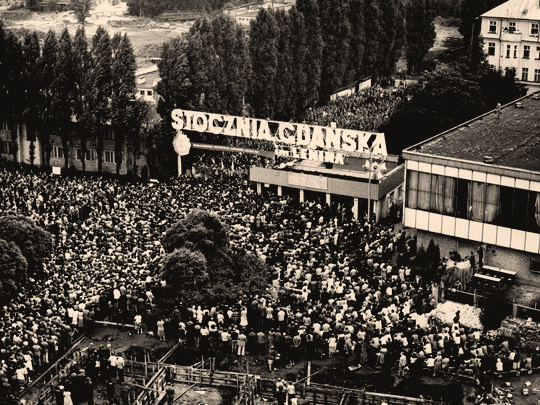
On 14 August 1980, a rise in food prices led to a strike at the Lenin Shipyard in Gdańsk, Poland, of which Lech Wałęsa was one of the instigators.
Wałęsa scaled the shipyard fence and quickly became one of the strike leaders. The striking workers, numbering over 16,000, inspired other similar strikes that spread across Poland.
Wałęsa headed a Committee, coordinating the workers at Gdańsk and at 20 other plants in the region. On August 31, the government signed an accord with the Strike Coordinating Committee.
The agreement granted the Lenin Shipyard workers the right to strike and permitted them to form an independent trade union.
The Strike Coordinating Committee legalized itself as the National Coordinating Committee of the Solidarity Free Trade Union, and Wałęsa was chosen as chairman of the Committee.
The Solidarity trade union quickly grew, ultimately claiming over 10 million members, more than a quarter of Poland’s population.
Wałęsa’s role in the strike gained him fame on the international stage.
3 – J.R. is Famously Shot on the TV show Dallas
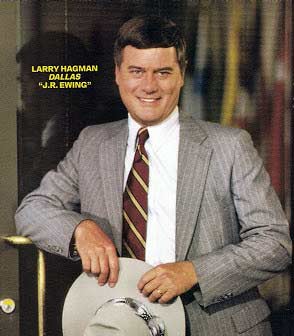
“Who shot J.R.?” became a renowned catchphrase in 1980 to promote the television series Dallas.
It revolved around a murder attempt against the character J.R. Ewing in the show’s third-season finale.
The mystery was not resolved until the fourth episode of the fourth season, which aired eight months later.
In the final scene of the season, J.R. Ewing, played by Larry Hagman, hears a noise outside his office, walks out to the corridor to look, and is shot twice by an unseen assailant.
The episode, “A House Divided”, was broadcast on March 21, 1980. Viewers had to wait all summer to learn whether J.R. would survive, and which of his many enemies was responsible.
Ultimately, the person who pulled the trigger was revealed to be Kristin Shepard, played by Mary Crosby, in the episode which aired on November 21, 1980.
Kristin was J.R.’s scheming sister-in-law and mistress, who shot him in a fit of anger. J.R. survived but did not press charges, as Kristin claimed she was pregnant with his child as a result of their affair.
4 – Gwangju Massacre – Hundreds are Killed
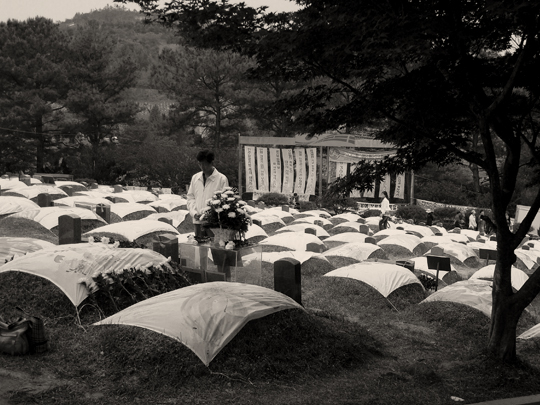
The Gwangju Uprising was a popular uprising in Gwangju, South Korea, from May 18 to 27, 1980. Estimates suggest up to as many as 606 people may have died.
Gwangju citizens rose up when local Jeonnam University students, who had been demonstrating against the government, were fired upon, beaten, and killed by government troops.
The uprising ended in defeat on May 27, 1980. Official figures released, put the death toll at 144 civilians, 22 troops and 4 police killed, with 127 civilians, 109 troops and 144 police wounded.
The official figures have been criticized by some as being too low.
Reports by foreign press sources and critics of the administration have argued that the actual death toll was in the 1,000 to 2,000 range.
In 1997, May 18 was declared an official memorial day.
In 2002, a law privileging bereaved families took effect, and the Mangwol-dong cemetery was elevated to the status of a national cemetery.


